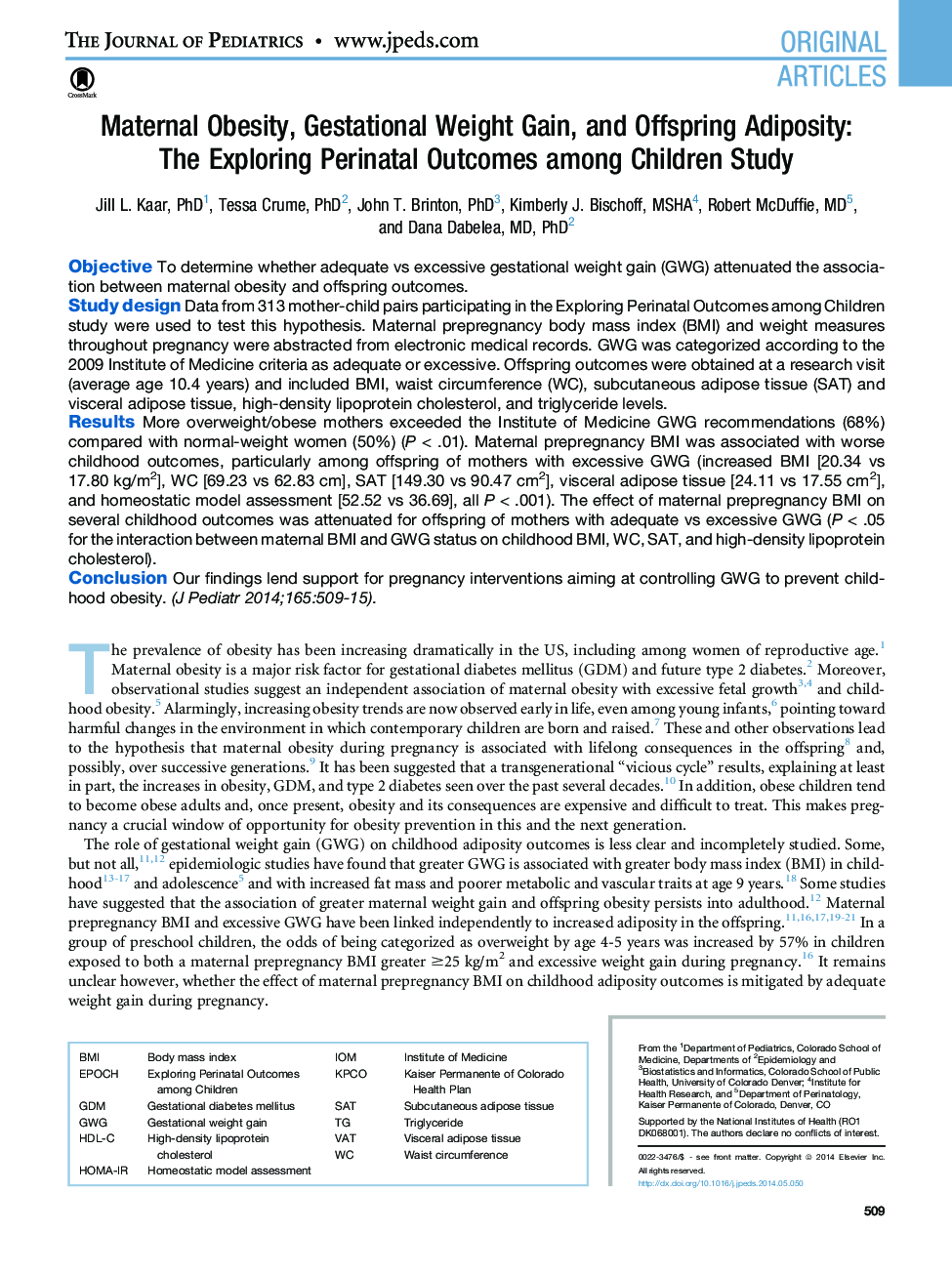| Article ID | Journal | Published Year | Pages | File Type |
|---|---|---|---|---|
| 6222264 | The Journal of Pediatrics | 2014 | 7 Pages |
ObjectiveTo determine whether adequate vs excessive gestational weight gain (GWG) attenuated the association between maternal obesity and offspring outcomes.Study designData from 313 mother-child pairs participating in the Exploring Perinatal Outcomes among Children study were used to test this hypothesis. Maternal prepregnancy body mass index (BMI) and weight measures throughout pregnancy were abstracted from electronic medical records. GWG was categorized according to the 2009 Institute of Medicine criteria as adequate or excessive. Offspring outcomes were obtained at a research visit (average age 10.4Â years) and included BMI, waist circumference (WC), subcutaneous adipose tissue (SAT) and visceral adipose tissue, high-density lipoprotein cholesterol, and triglyceride levels.ResultsMore overweight/obese mothers exceeded the Institute of Medicine GWG recommendations (68%) compared with normal-weight women (50%) (PÂ <Â .01). Maternal prepregnancy BMI was associated with worse childhood outcomes, particularly among offspring of mothers with excessive GWG (increased BMI [20.34 vs 17.80Â kg/m2], WC [69.23 vs 62.83Â cm], SAT [149.30 vs 90.47Â cm2], visceral adipose tissue [24.11 vs 17.55Â cm2], and homeostatic model assessment [52.52 vs 36.69], all PÂ <Â .001). The effect of maternal prepregnancy BMI on several childhood outcomes was attenuated for offspring of mothers with adequate vs excessive GWG (PÂ <Â .05 for the interaction between maternal BMI and GWG status on childhood BMI, WC, SAT, and high-density lipoprotein cholesterol).ConclusionOur findings lend support for pregnancy interventions aiming at controlling GWG to prevent childhood obesity.
